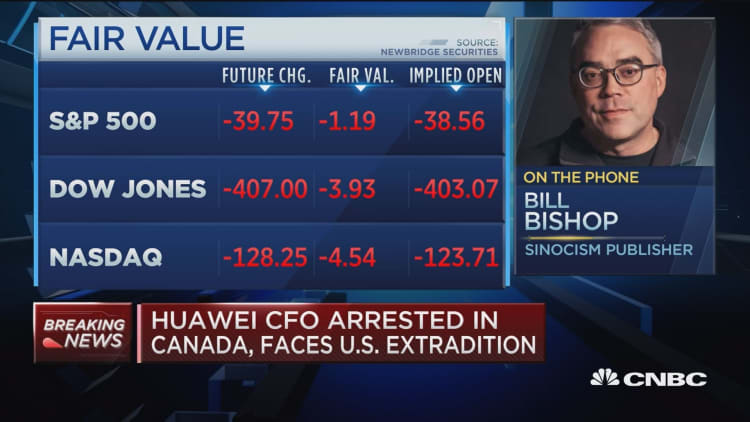The arrest of Huawei CFO Meng Wanzhou in Canada for possible Iran sanctions violations yesterday has deeper roots in a difficult legal history between the hardware giant and U.S. regulators and intelligence agencies.
The U.S. government has spent the better part of the last decade taking issue with the company over topics including the firm's alleged espionage ties to the Chinese government and allegations of a long history of intellectual property theft. Huawei is one of China's largest companies, with a reported $100 billion in revenue in 2018 and 180,000 employees across 170 global offices.
Starting around 2010, U.S. intelligence officials began warning agencies, and then private companies, of what it said were clear-cut cases of the company serving as a proxy for espionage conducted by the Chinese government, a claim frequently made publicly by former National Security Agency director Michael Hayden.
In 2012, the U.S. House Intelligence Committee released a report which followed an investigation into the company and its competitor ZTE.
"The Committee received almost no information on the role of Chinese Communist Party Committee within Huawei or specifics about how Huawei interacts in formal channels with the Chinese government," the report said. "Huawei refused to provide details about its business operations in the United States, failed to disclose details of its dealings with the Chinese military or intelligence services and would not provide clear answers on the firm's decision-making processes."
At that time, the Intelligence Committee also called into question the company's dealings in Iran, which Huawei had pledged to scale back in accordance with international sanctions.
"Huawei refused to provide any internal documents relating to its decision to scale-back operations in Iran or otherwise ensure compliance with U.S. laws," the report said.
Huawei has also had trouble breaking into the U.S. market because of the U.S. intelligence reports. In 2011, the company tried to acquire 3Leaf, a deal that was nixed after government pressure.
The company's equipment has been banned by several different agencies because of the espionage and security fears, and those bans ramped up in 2018, when President Trump disallowed U.S. government use of Huawei products and those made by ZTE, following a CIA and NSA warning in February. In January, AT&T abandoned its plans to launch a new flagship phone from Hauwei.
Huawei was also heavily rumored to be behind Trump's decision to stop the Broadcom/Qualcomm merger. Also this year, a start-up backed by Microsoft and Dell, sued Huawei for alleged widespread IP theft. Most recently, the FCC also banned Huawei equipment from small and regional carriers earlier this year.
Huawei has strongly denied the claims made against it. Donald Purdy, both a Huawei executive and the former top cybersecurity official at the Department of Homeland Security, said in an op-ed in Fortune in June that the moves would hurt development expansion of 5G service in the U.S.
"Policymakers should bear in mind that overreaching or poorly targeted regulations usually have unintended consequences, such as those that will surely result from the FCC's proposal to force rural carriers to remove China-sourced equipment from their networks," he said. "In many cases, Huawei's is the only equipment that America's small, independent carriers can afford."



